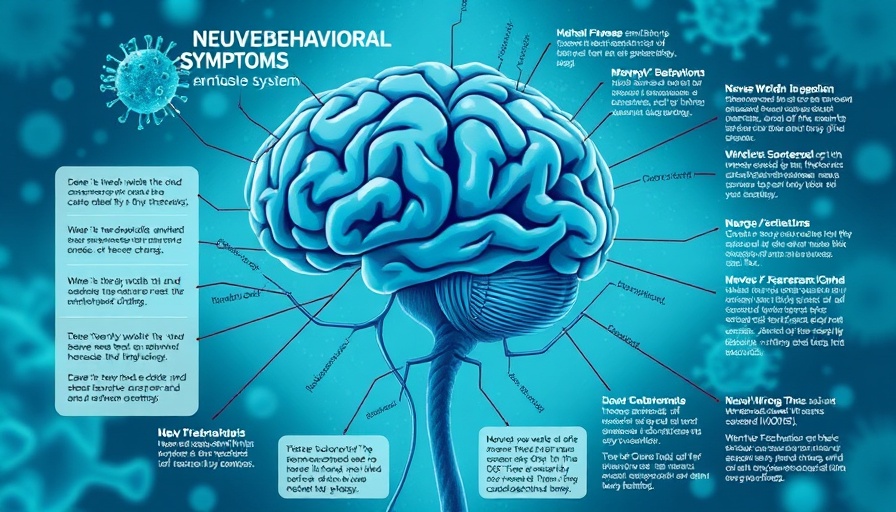
Breaking Down the Neurological Impacts of Herpes Simplex Virus
The herpes simplex virus type 1 (HSV-1) is often associated with cold sores, but recent findings from researchers at the University of Illinois Chicago reveal alarming neurobehavioral consequences stemming from intranasal infections. This groundbreaking study highlights that not only does the virus have the potential to cause traditional physical symptoms, but it also poses significant risks to mental health, motor skills, and cognitive function due to its ability to infiltrate the nervous system more directly through the nose.
Understanding How Herpes Enters the Nervous System
Herpes typically enters the body via contact through broken skin or mucous membranes. The nose, being rich in nerve endings and directly connected to the brain, serves as a potent gateway for HSV-1. According to Professor Deepak Shukla, led the research team, individuals shedding the virus via tears can inadvertently infect their nasal passages, leading to a more severe outcome than mere oral or ocular symptoms.
The Alarming Link Between HSV-1 and Neurobehavioral Symptoms
Experiments conducted with animal subjects revealed significant inflammation in brain tissues just days after the infection. These animals, simulating long-term effects seen in humans, showed prolonged deficits in motor coordination and memory, coupled with increased anxiety-like behaviors—an alarming trio of symptoms that may continue to impact the emotional wellbeing of those infected. As noted by Shukla, the nerve damage associated with intranasal infection could have long-lasting repercussions, emphasizing the need for increased awareness and proper diagnosis.
Heparanase: A Key Suspect in Neurobehavioral Damage
One of the pivotal aspects of the research involved the examination of a cellular enzyme called heparanase. This enzyme appears to play a significant role in mediating the damaging effects of HSV-1 on the brain. When researchers disabled the heparanase gene in test subjects, those animals did not exhibit the same neurobehavioral deficits. These insights pave the way for potential therapeutic interventions aimed at mitigating the brain injury typically associated with herpes infections, potentially transforming treatment protocols in the future.
Global Implications: Raising Awareness of HSV-1
Globally, nearly two-thirds of the population is estimated to carry HSV-1, with a significant portion remaining unaware of their infection status. This highlights the importance of public health campaigns which focus not only on education but also on providing resources for diagnosis and treatment. The findings stress the necessity for clinicians and patients alike to recognize the broader implications of this common virus beyond its physical symptoms.
Future Research Directions on Herpes Infection
With HSV-1’s commonality and potential for severe long-term consequences, the next steps in research are critical. Continued studies on the virus's neurological impact can help develop better therapeutic strategies to reduce or even prevent long-term brain injury. As researchers like Dr. Hemant Borase suggest, understanding how to mitigate neuroinflammation may fundamentally change how healthcare professionals treat viral infections moving forward.
Conclusion: The Need for Awareness and Action
The implications of this research extend beyond the laboratory into the intertwined fabric of public health. As the conversation around HSV-1 shifts from stigma to understanding, we must emphasize the importance of awareness, treatment, and preventative measures. The latest findings encourage increased research and dialogue among scientists, clinicians, and the public to cultivate a better understanding of HSV-1 and its profound implications on mental and neurological health.
Take Action Towards Awareness.
Given the widespread nature of HSV-1 and its potential neurobehavioral effects, it is crucial to discuss and educate others about its implications. Consider engaging in advocacy for public health resources or seeking further information to share with your community. Let’s foster awareness to not only combat the virus but also alleviate the psychological impacts it can impose on countless individuals.
 Add Element
Add Element  Add Row
Add Row 



 Add Row
Add Row  Add
Add 


Write A Comment